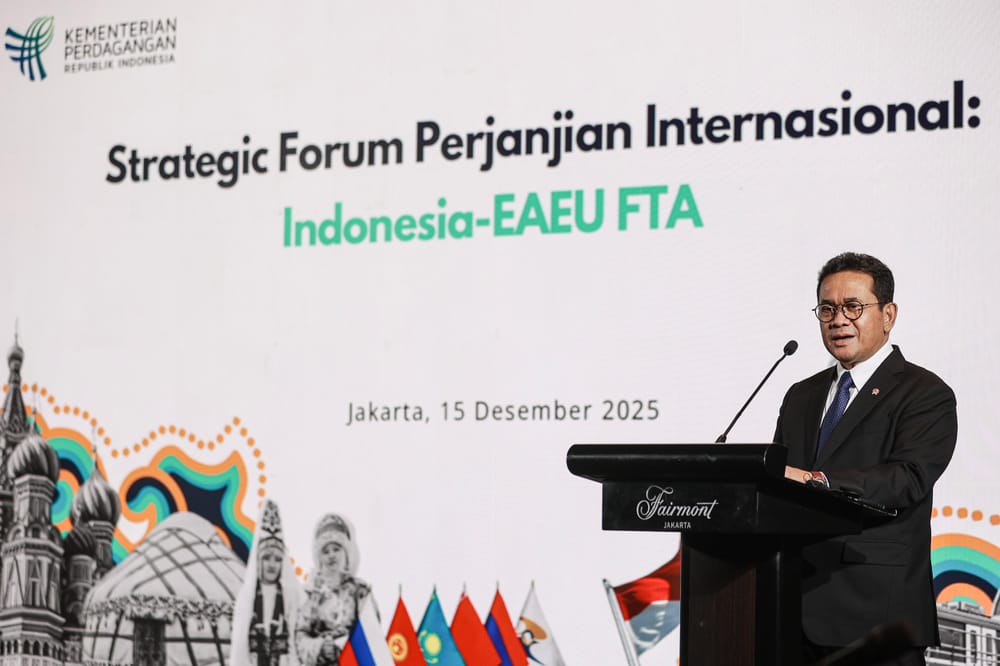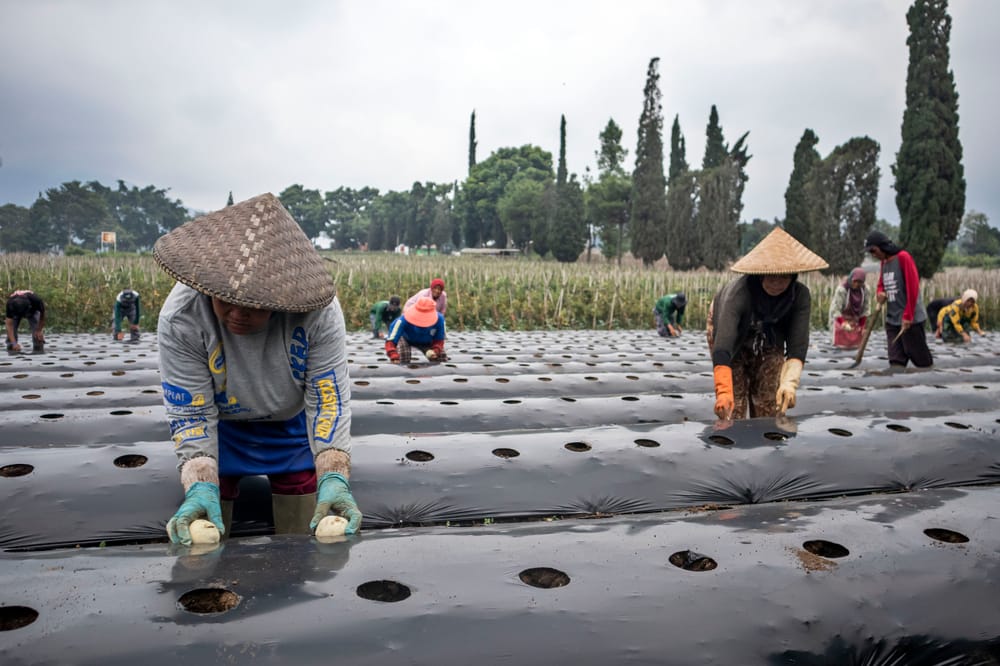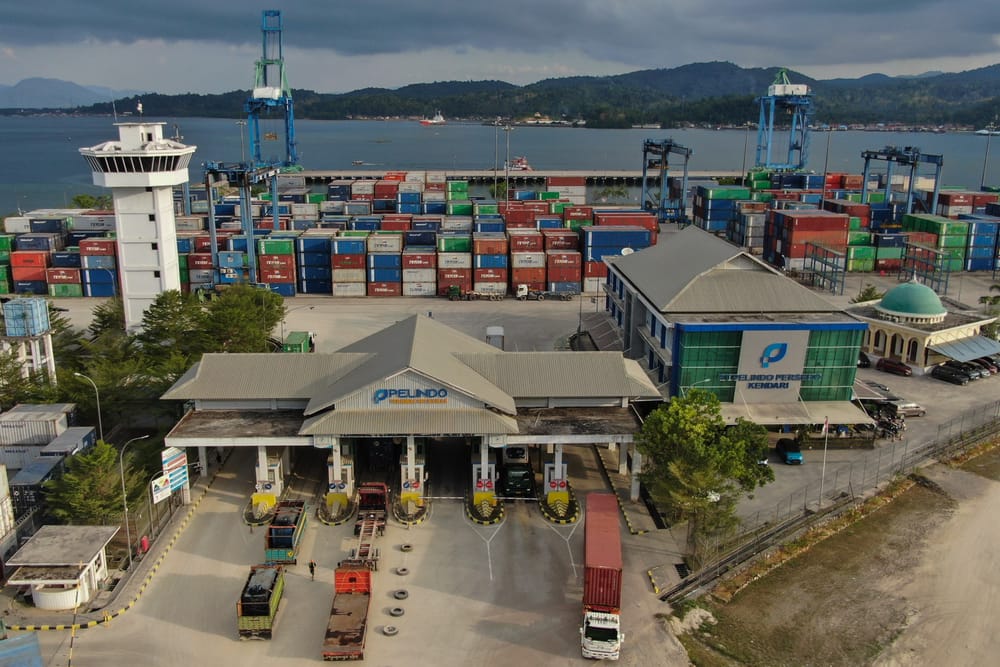Indonesia's foreign exchange reserves are recorded as stable amidst economic turmoil, including the threat of import tariffs from the United States. Business concerns had increased after the announcement of a 32% tariff in April, which was then revised to 19% in July and took effect on August 7, 2025.
Based on official information from Bank Indonesia (BI) on Thursday (7/8/2025), the position of foreign exchange reserves in July 2025 was recorded at US$ 152.0 billion, slightly down from the end of June 2025 position of US$ 152.6 billion.
Executive Director of the BI Communication Department, Ramdan Denny Prakoso, said that the slight decrease was influenced by government foreign debt payments and the rupiah exchange rate stabilization measures taken by Bank Indonesia in response to high uncertainty in global financial markets.
"This foreign exchange reserve position is considered very adequate because it is equivalent to financing 6.3 months of imports, above the international standard of 3 months of imports," said Ramdan, Thursday (7/8/2025).
This foreign exchange reserve position is relatively stable even amidst the upheaval of trade tariff decisions set by United States (US) President Donald Trump. Since first sparking the issue of trade tariff changes last April, international trade has been directly impacted. Many exports and imports have been held back awaiting certainty on the amount of tariffs to be set by Trump.
However, Indonesia's foreign exchange reserves from April 2025 to July 2025 were in a relatively stable position. In April, the value of foreign exchange reserves was at US$ 152.46 billion, in May at US$ 152.48 billion, in June at US$ 152.56 billion, and in July at US$ 151.98 billion.
Chief Economist of Bank Mandiri, Andry Asmoro, highlighted the stable position of Indonesia's foreign exchange reserves from April 2025 to July 2025. The stability of foreign exchange reserves was influenced by tax revenues and service sector revenues amidst government foreign debt payments, as well as rupiah exchange rate stabilization interventions amidst increasing global financial market uncertainty.
"However, the position of foreign exchange reserves remains high and shows resilience to Indonesia's external sector," said Asmo, Andry Asmoro's nickname.
Future trends
Asmo said that Indonesia's foreign exchange reserves are expected to remain strong along with support from the trade balance surplus and the prospect of capital inflows into emerging markets. Indonesia itself has recorded a trade balance surplus for 62 consecutive months.
Economist at the Institute for Economic and Social Research, University of Indonesia (LPEM UI), Teuku Riefky, projects that Indonesia's foreign exchange reserves until the end of the year will experience pressure.
He further explained the global economic factors as the cause of the decline in foreign exchange reserves.
"...if we look at Trump's tariffs, of course there will be pressure on the value of the rupiah, thus reducing Indonesia's foreign exchange reserves," he told SUAR, (7/8/2025).
On the other hand, he estimates that BI will intervene by using foreign exchange reserves to maintain the rupiah exchange rate.
Chairman of the Indonesian Export Entrepreneurs Association (GPEI), Benny Soetrisno, said that although the difference between exports and imports is currently narrowing, Indonesia's trade balance is still in surplus. He also added that current foreign exchange reserves are also strengthened by a policy requiring the retention of foreign exchange earnings from natural resource (SDA) exports for 12 months.
However, this mandatory DHE storage policy is less appropriate to apply to processing industry exporters. This is because many of the raw materials for the manufacturing industry still have to be supplied from imports. Cash from export revenues is directly rotated to buy raw materials which are then immediately needed for production.
This policy is indeed more appropriate for DHE from natural resources. This is because DHE in this sector makes it possible to be deposited in the domestic financial system.
However, potential future pressures still need to be observed, especially from the US tariff policy which sets an import tariff of 19% on products originating from Indonesia, which could affect the performance of national exports. Leading commodities such as coal and CPO are expected to remain the mainstays of Indonesia's external sector resilience.
Benny also emphasized the importance of the rupiah's stability for entrepreneurs. According to him, a stable rupiah, supported by strong foreign exchange reserves, allows entrepreneurs to calculate exchange rate risks more accurately and avoid losses.
"The hope is that the rupiah will be stable, the fluctuations should not be too high or too low, so we can calculate the exchange rate risk," he told SUAR (7/8/2025).

To improve the resilience of businesses, Benny suggested that the government reduce hedging costs, an instrument used to maintain exchange rate certainty. However, he believes that hedging costs in Indonesia are currently too expensive.






